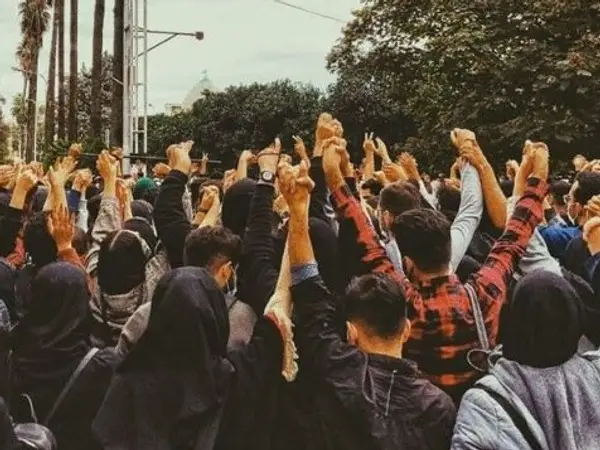To bring universities under control in the aftermath of the crackdown on protests, authorities in Iran are suspending, exiling, and expelling students everywhere.
Reliable sources tell Iran International that since September, more than 400 students have faced suspensions, threats from disciplinary committees, or dormitory expulsions due to their refusal to adhere to hijab regulations, engaging in student activism, or expressing their political views on social media.
Many of these affected students, apprehensive about further repercussions, remain hesitant to disclose the suspension sentences imposed on them or share details of their harassment experiences.
A 20-year-old student from Tehran's Al-Zahra University did speak out recently, revealing that her university's disciplinary committee demanded a written apology for her actions. They sought her admission of wrongdoing and a pledge not to repeat her supposed mistake. Refusing to comply, she was subsequently suspended from studying for two terms and permanently barred from accessing university services. To make matters worse, she was abruptly evicted from her dormitory at ten in the evening.
Another student from Tehran University of Art told Ham-Mihan newspaper she was expelled from her dormitory and banned from entering the campus. “When I asked [the university authorities] for a [disciplinary committee] ruling and citing existing regulations, pointing out the illegality of their action, they called my family,” she said.
“When my family also protested to the decision, they were threatened with my arrest,” she said, adding that her frightened family had to immediately set on road from their hometown to get to the dormitory and take her away to prevent her arrest.
A scuffle over hijab between a female student and a Harasat agent who pushes her down the stairs.
“We protested to a death sentence to show our sensitivity to human rights issues as students, but I was subjected to interrogation for this outside the university,” another student from Tehran’s Shahid Beheshti University, who described the environment on the campus as “nerve-wracking,” said.
In some cases, students say, pro-government professors have helped the disciplinary committees by taking photos of students who did not abide by hijab rules in their classes.
Tens of professors and lecturers who were critical of the regime were expelled, suspended or forced to retire a few months ago to pave the way for hiring pro-regime faculty members.
On Sunday the chancellor of the Islamic Azad University with campuses around the country said the university has hired 18,000 young and revolutionary Ph.D. students” to replace lecturers. “A revolutionary atmosphere will be made possible through employment of young lecturers.
The Islamic Azad University, a private university system which is nevertheless controlled by the government, has over 350 campuses across the country and over one million students.
The purge of academia which was dubbed as “homogenization” of the academia by hardliners is widely seen as another attempt at “Islamification of the academia” and “a second Cultural Revolution” similar to the Cultural Revolution following the establishment of the Islamic Republic in the early 1980s, during which universities remained closed for nearly three years.
Students have been defying stricter hijab regulations including wearing the maqna’e, a black veil with a stitched front coming down to the chest that is much more conservative than the headscarf, and long-shapeless tunics.
Last month the intelligence and security body known as ‘Harasat’ raided classrooms in several faculties of the Shahid Beheshti University of Tehran during the lectures and confiscated the student ID cards of those who were not wearing maqna’e.
Harasat, a body present in all universities and government organizations, often works in tandem with the intelligence ministry and other intelligence agencies to gather information against both students and academic staff and its reports are often very instrumental in admission to post-graduate schools and even government employment.
